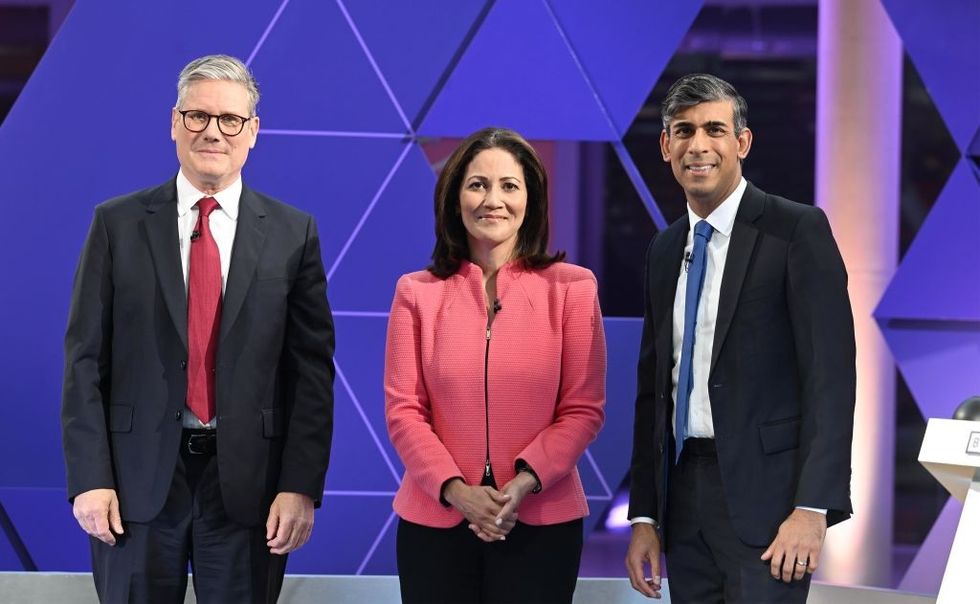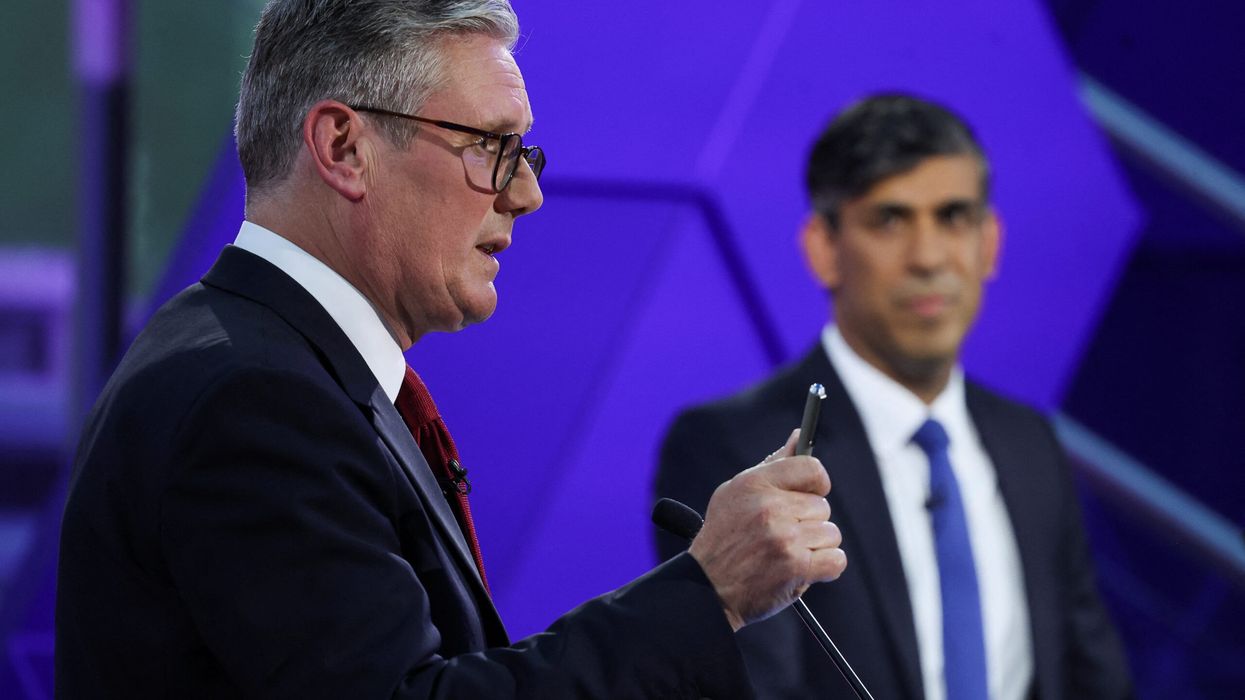PRIME MINISTER Rishi Sunak and Labour leader Keir Starmer went head-to-head on Wednesday (26) in their last debate before an election next week, with both launching highly personal attacks over their and their parties' credibility.
With Sunak's Tories trailing Labour by around 20 points in the polls, the prime minister went on the attack, accusing Starmer of not being straight with the country on migration, tax and women's rights, and urging voters not to "surrender" to the Labour.
Starmer responded that Sunak was too rich to understand the concerns of most ordinary Britons. A snap YouGov poll said the debate had been a tie, with both on 50%.
On immigration, one of the top concerns for British voters, Sunak rejected Starmer's argument that he would seek to return migrants to their home countries, saying many had arrived in Britain from Iran, Syria and Afghanistan.
"Is he going to sit down with the Iranian Ayatollah? Are you going to try and do a deal with the Taliban? It's completely nonsensical. You are taking people for fools."

Polls indicate that Labour's Starmer is on course to win the election with a large majority, ending 14 years of Tory rule. The two leaders have met at several debates or public sessions with voters, increasingly focusing on who was better suited to lead the country.
Starmer argued the country was exhausted after 14 years of Tory "chaos", and that he would better understand the challenges of many families who have struggled under soaring inflation and a cost-of-living crisis.
"Part of the problem we have with this prime minister is that his lived world is millions of miles away from the lived worlds of individuals across the country, the businesses and the families that they're trying to support," he said.
Sunak's campaign has struggled since the beginning. He launched the election in pouring rain in Downing Street and was heavily criticised for failing to attend a D-Day memorial event.
He has also had to contend with a betting scandal after five party officials, including two candidates, were investigated over bets that were placed on the timing of an early election.
Starmer has also faced criticism at public events, being accused by voters of sticking to a script and being robotic, and failing to give enough information on how he would fund much-needed improvements to public services.
One questioner, Robert, seemed to speak for much of the audience when he set out his feelings. He called Sunak a "pretty mediocre prime minister" and said he thought that Starmer's strings were being pulled by senior members of the Labour.
"Are you two really the best we've got to be the next prime minister of our great country?" he said, to loud applause. He later told the BBC he had still not decided who to vote for.
(Reuters)





